Breastfeeding is a vital time for both mother and baby, where the quality of the mother’s diet can significantly impact the baby’s health and development. As such, it is crucial to be mindful of the foods consumed during this period. In this guide, we will explore 17 foods to avoid while breastfeeding, providing detailed insights into why these foods might not be suitable and offering healthier alternatives.
1. Caffeinated Beverages
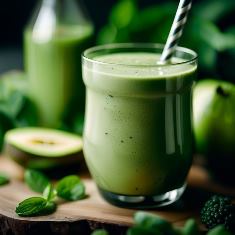
Caffeine, found in coffee, tea, and certain soft drinks, can pass into breast milk and potentially affect your baby’s sleep patterns and irritability. It’s advisable to limit caffeine intake to less than 300 mg per day, roughly equivalent to two cups of coffee.
Why Avoid Caffeine?
Excessive caffeine can lead to:
- Sleep disturbances in infants
- Increased fussiness
- Possible dependency on caffeine
Healthier Alternatives
Opt for herbal teas such as chamomile or peppermint, which are caffeine-free and can also offer additional health benefits.
2. Alcohol
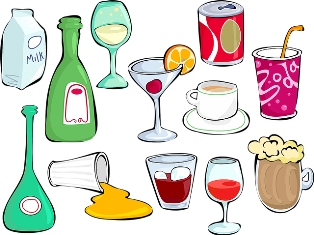
Alcohol consumption can significantly affect breastfeeding, as it can pass into breast milk and impair the baby’s development and sleep. It is recommended to avoid alcohol altogether while breastfeeding.
Why Avoid Alcohol?
Alcohol can lead to:
- Reduced milk production
- Impaired motor development
- Increased risk of sudden infant death syndrome
Healthier Alternatives
Choose non-alcoholic beverages or sparkling water to enjoy a refreshing drink without the risks associated with alcohol.
3. High-Mercury Fish
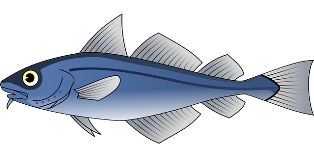
Certain fish, such as shark, swordfish, and king mackerel, contain high levels of mercury, which can adversely affect your baby’s developing nervous system.
Why Avoid High-Mercury Fish?
Mercury can cause:
- Neurological impairments
- Developmental delays
Healthier Alternatives
Opt for low-mercury fish like salmon, tilapia, or trout, which provide essential omega-3 fatty acids without the high mercury levels.
4. Processed Foods
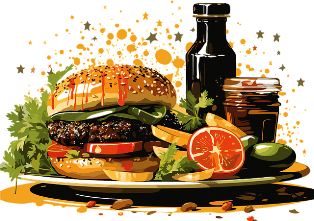
Processed foods, including snacks, ready meals, and sugary treats, often contain high levels of sodium, unhealthy fats, and artificial additives.
Why Avoid Processed Foods?
Processed foods can contribute to:
- Nutrient deficiencies
- Weight gain
- Increased risk of chronic diseases
Healthier Alternatives
Focus on whole foods, such as fresh fruits, vegetables, and lean proteins, to provide a balanced and nutritious diet.
5. Spicy Foods
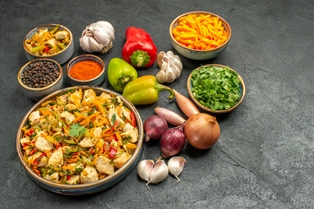
Spicy foods can sometimes cause gastrointestinal discomfort in both the mother and the baby, potentially leading to fussiness or digestive issues in infants.
Why Avoid Spicy Foods?
Spicy foods can cause:
- Gastrointestinal upset
- Increased fussiness in babies
Healthier Alternatives
If you enjoy spicy flavors, consider using mild spices and herbs to add flavor without the heat, such as turmeric or coriander.
6. Dairy Products
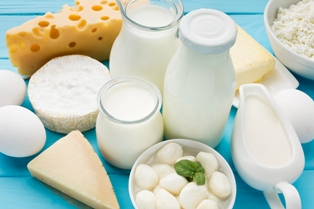
Dairy products can be a common allergen for infants. If you notice signs of lactose intolerance or milk allergy in your baby, reducing dairy consumption may be necessary.
Why Avoid Dairy Products?
Dairy can cause:
- Digestive issues
- Allergic reactions
Healthier Alternatives
Try lactose-free dairy options or plant-based milk alternatives, such as almond or oat milk.
7. Artificial Sweeteners
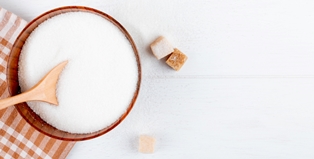
Artificial sweeteners, such as aspartame and saccharin, are often found in diet sodas and sugar-free products. These sweeteners can be transferred to breast milk and may have potential long-term health impacts.
Why Avoid Artificial Sweeteners?
Potential risks include:
- Uncertain long-term health effects
- Possible negative impact on metabolism
Healthier Alternatives
Use natural sweeteners like honey or maple syrup in moderation for a healthier option.
8. Garlic
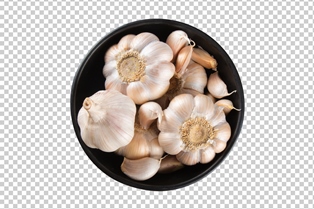
While garlic has numerous health benefits, it can sometimes alter the flavor of breast milk, leading to a baby’s reluctance to feed.
Why Avoid Garlic?
Garlic can lead to:
- Altered milk taste
- Feeding difficulties
Healthier Alternatives
If you love garlic, use it sparingly and monitor your baby’s reaction. Consider using mild herbs instead.
9. Excessive Salt

High-sodium foods, such as canned soups and processed meats, can contribute to high blood pressure and other health issues.
Why Avoid Excessive Salt?
Excessive salt intake can cause:
- Increased blood pressure
- Fluid retention
Healthier Alternatives
Use herbs and spices to enhance flavor without the added salt, focusing on fresh, whole foods.
10. Refined Sugars
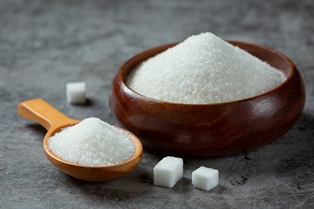
Refined sugars found in sweets, pastries, and sugary drinks can lead to weight gain and nutritional deficiencies.
Why Avoid Refined Sugars?
Refined sugars can contribute to:
- Nutritional imbalances
- Increased risk of obesity
Healthier Alternatives
Choose fresh fruits or unsweetened yogurt for a natural sweetness and added nutrients.
11. Nuts
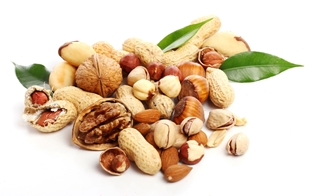
While nuts are generally healthy, they can be a potential allergen for some infants. If there is a family history of nut allergies, it might be wise to avoid them.
Why Avoid Nuts?
Nuts can cause:
- Allergic reactions
- Potential for severe anaphylaxis
Healthier Alternatives
If you suspect nut allergies, consult with a pediatrician and consider seed-based options like chia or flax seeds.
12. Soy Products
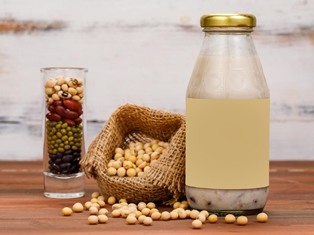
Soy products, including soy milk and tofu, can sometimes cause allergic reactions in infants or disrupt hormone balance.
Why Avoid Soy Products?
Soy can affect:
- Hormone levels
- Potential allergen
Healthier Alternatives
Choose dairy-free alternatives like coconut or almond milk if you have concerns about soy.
13. Raw or Undercooked Eggs

Raw or undercooked eggs carry a risk of salmonella, which can cause severe food poisoning and affect both the mother and the baby.
Why Avoid Raw or Undercooked Eggs?
Potential risks include:
- Foodborne illnesses
- Increased risk of infection
Healthier Alternatives
Ensure eggs are fully cooked before consumption to eliminate risks.
14. High-Sugar Cereals
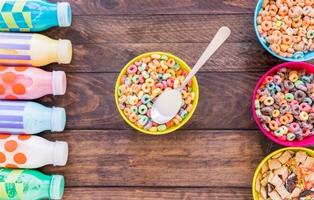
High-sugar cereals are often low in nutrients and can contribute to excessive sugar intake, impacting both maternal and infant health.
Why Avoid High-Sugar Cereals?
High-sugar cereals can cause:
- Nutritional deficiencies
- Weight gain
Healthier Alternatives
Opt for whole grain cereals or oatmeal for a more nutritious breakfast option.
15. Certain Herbs and Supplements
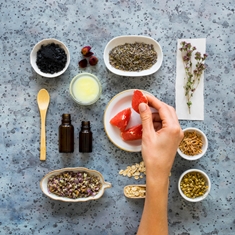
Some herbs and supplements, such as ginseng or certain essential oils, can have effects on lactation or the baby’s health.
Why Avoid Certain Herbs and Supplements?
Potential risks include:
- Interactions with medication
- Impact on milk supply
Healthier Alternatives
Always consult a healthcare provider before incorporating new herbs or supplements into your diet.
16. Foods High in Trans Fats
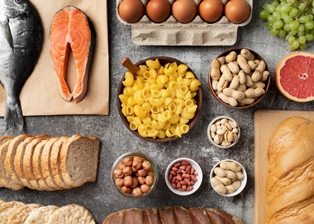
Trans fats, found in many fried and processed foods, can negatively impact heart health and overall well-being.
Why Avoid Trans Fats?
Trans fats can lead to:
- Increased cholesterol levels
- Higher risk of heart disease
Healthier Alternatives
Choose healthy fats such as avocado, nuts, and olive oil.
17. Artificial Colorings

Artificial colorings and flavorings in processed foods can cause allergic reactions and behavioral issues in some infants.
Why Avoid Artificial Colorings?
Artificial colorings can contribute to:
- Behavioral issues
- Allergic reactions
Healthier Alternatives
Focus on naturally colored foods like berries and vegetables to add vibrant hues to your diet.
FAQs Section
Healthy foods like lean proteins, fruits, vegetables, whole grains, and plenty of water are ideal.
Look for signs like unusual fussiness, rashes, digestive issues, or sleep disturbances after feeding.
Moderation is key. Occasionally eating these foods in small amounts is usually fine, but monitor your baby’s reactions.
Yes, but limit your intake to about 300 mg of caffeine per day, or roughly two 8-ounce cups of coffee.
Conclution
By being mindful of these dietary considerations, breastfeeding mothers can better support their baby’s health and ensure a positive breastfeeding experience. For personalized advice and further information, consult with a healthcare professional or a registered dietitian.
